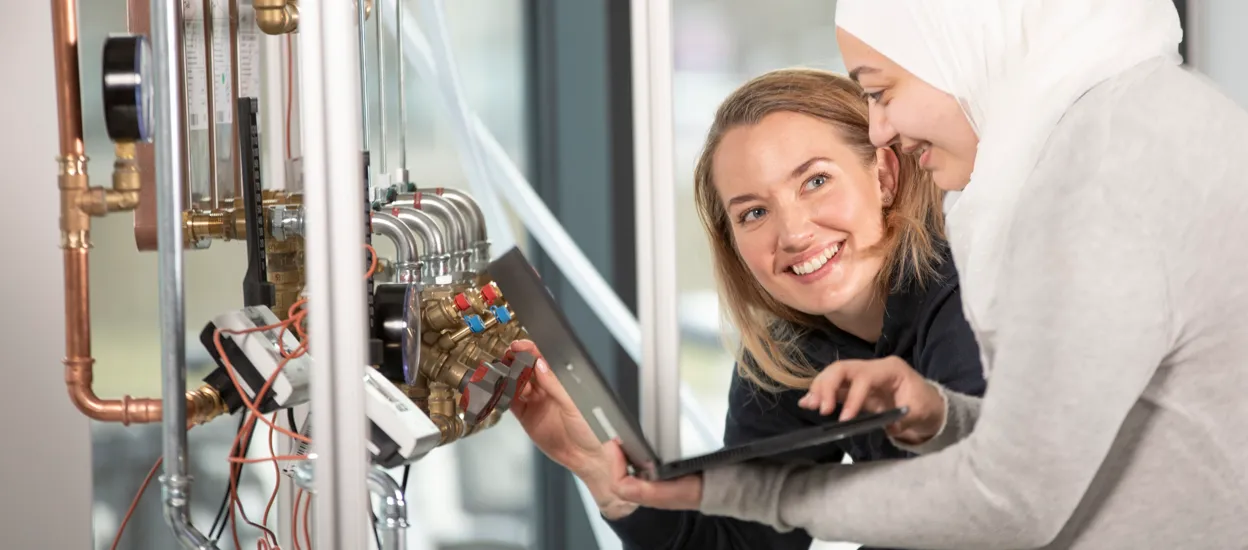
Master's Programme in Energy Smart Innovation in the Built Environment
The Master’s programme in Energy Smart Innovation in the Built Environment gives you an indepth understanding of the importance of renewable energy when developing sustainable citites. Your skills will be relevant and sought after when it comes to working with construction engineering in urban development.
Education occasions
About the education
Courses and competencies
The Master’s programme in Energy Smart Innovation focuses on the technology of smart energy solutions in the built environment, as well as on principles for the successful implementation of these. In the first semester, you take joint courses in the programme's main field of study. In this way, students acquire a common knowledge base on construction and energy technology. This is followed by courses aimed at deeper technical knowledge, as well as knowledge of innovation processes linked to the implementation of energy solutions in the built environment.
Learn more about the courses included in the programme in the programme syllabus.
The programme is conducted in English.
Innovative environments and teaching methods
At Halmstad University you will have access to high-technology labs where theory could be tested in practise.The labs are natural meeting points for students, teachers and researchers and enable you to solve problems together.
During your classes, you will be asked to share your opinions, encouraged to discuss problems from various perspectives and challenge what you already know.
Small student groups and frequent group work enable close connection to your classmates and lecturers, which helps you to build a professional network for your future career.
Collaboration opportunities
Several courses are project-based and are carried out in close collaboration with the business community. The Master’s programme in Energy Smart Innovation is closely linked to several of the university's research environments, as well as to the profile area Smart Cities and Communities, and several of its teachers are active researchers in areas such as innovation, construction innovation, energy efficiency, district heating and wind power.
After the education
Degree
The program leads to a Degree of Master of Science (120 credits) with a major in Construction Engineering with specialisation in Renewable Energy.
Career
The Master's Programme in Energy Smart Innovation in the Built Environment you to work in both private organisations and the public sector. Your skills will be relevant and sought after when it comes to working with urban development and renewable energy.
Examples of professional roles:
- Project Manager/Consultant for private or public sector
- Technical Specialist
- Research and Development within sustainable energy and energy efficiency
- Innovation Leader
- Calculation Engineer
Opportunities for further studies
After the programme, you are qualified to apply for doctoral and PhD studies, for example in the University's own third cycle courses.
Meet our students and former students

Five questions for alumnus Daniel Andrés Prieto
Daniel Andrés Prieto studied the Master’s Programme in Energy Smart Innovation in the Built Environment, and he now works as a Construction Engineer at a company in Skellefteå, Sweden.
Contact
- Questions about entry requirements, selection and admissions: admissions@hh.se
- Questions regarding studies and career opportunities: Study and Career Guidance
- Questions about the content of the education, contact the Programme Director. Contact details can be found in the education occasions box.

